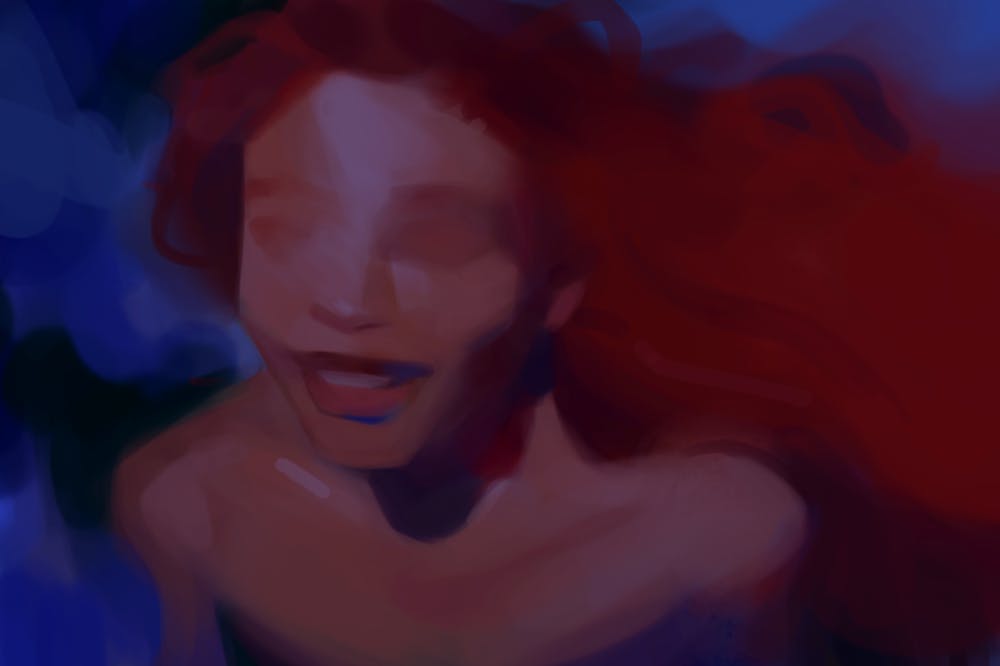In a contemporary United States, backlash over a Black woman being chosen to play a mythical creature princess reinforces the racist undertones in our nation’s film industry.
We all are familiar with the story of Ariel, a rebellious teenage mermaid who escapes her oceanic home, falls in love with a human prince, and makes a dangerous deal with a sea witch. The Little Mermaid, a classic Disney story, originated from Danish author Hans Christian Andersen’s literary fairy tale published in 1837. After several adaptations, Disney’s version of The Little Mermaid hit the theaters in 1989. Met with immediate success, the film racked up over $100M in its domestic gross box office and went on to win two Academy Awards; Best Original Music Score and Best Original Song (“Under the Sea”).
In 2019, Disney announced a live–action remake of the renowned film starring Halle Bailey as Ariel. Unsurprisingly, Disney’s decision to cast Bailey—part of Grammy nominated duo Chloe x Halle—was immediately met with criticism. Many Disney fans stormed Twitter with the hashtag #NotMyAriel, expressing their opposition to the casting decision and threatening to boycott the film. The disapproval has been reignited recently due to Disney’s release of a teaser trailer for the film, featuring Bailey swimming through her collection of human treasures and singing “Part of your World.” Though the dislike button has since been disabled by YouTube, the trailer reportedly accumulated over 1.5 million dislikes.
The argument from #NotMyAriel supporters is simple: Disney should cast characters to look like the cartoon version they know and love. This statement is inherently problematic in more ways than one.
First, the story of the Little Mermaid does not depend upon the fact that Ariel is white. Ariel is a young mermaid princess who goes on a journey to find herself in a world unlike her own. This storyline can be achieved by a beautiful, dark–skinned Black woman just as well as a blue–eyed white woman. Disney has even chosen to keep true to Ariel’s original look by giving Halle Bailey long, red hair. And let’s keep in mind that the character of Ariel is not even human, but rather a mythical creature, which should entirely eliminate the race argument. Ariel’s adoration is not tied to her whiteness, but rather to her bright and bubbly nature, her compassion for others, and her willingness to explore the unknown.
To provide a counterexample, a white actor being chosen to play Black Panther, Mulan, Moana, etc. is problematic because these storylines depend on their racial identity. These characters’ backgrounds and experiences revolve around their cultural and racial upbringing and environment; therefore a white actor cannot portray these characters accurately and in good form. The story of Pocahontas, for instance, is written on the basis that Pocahontas was part of a Native American tribe who clashed with the English colonizers. Thus, to cast her as a white woman would be a cruel twist of irony.
The question still remains of whether these same critics of Bailey as Ariel had anything to say about Jake Gyllenhaal as Dastan in Prince of Persia, Emma Stone as Allison Ng in Aloha, and Johnny Depp as Tonto in The Lone Ranger. “Whitewashing,” the practice of a white actor being chosen to play a character of color, is a regular occurrence in Hollywood, but often overlooked. Whitewashing is a form of repression, silencing the voices and stories of people of color. White people have ample representation in every form of media, including film.
POC representation, however, is important now more than ever. With racial tensions at an all–time high, young Black Americans seeing themselves reflected in the media is empowering and necessary. Halle Bailey being chosen to play Ariel is not forced diversity by Disney as some critics might say, but rather a bold statement that actors of color deserve big roles just the same as their white counterparts.
To counteract the #NotMyAriel hashtag on Twitter, hashtags like #representationmatters and #blackgirlmagic have emerged. Black parents have taken to Instagram and TikTok to post videos of their children’s reactions to the revamped Little Mermaid.
In the wake of the backlash, Bailey remembers her grandparents telling her: “You don’t understand what this is doing for us, for our community, for all the little Black and brown girls who are going to see themselves in you.'" Bailey also reflects upon how her younger self would've loved to see the cartoon princess Ariel played by a POC. “What that would have done for me, how that would have changed my confidence, my belief in myself, everything,” Bailey says. “Things that seem so small to everyone else, it’s so big to us.”
Additionally, Bailey has received praise from big names in the film industry, including from the original Ariel herself. Jodi Benson, the voice actress for Ariel in the original 1989 animated film, took to her Instagram story to say “Halle, you were absolutely amazing! I'm SO proud of you and your beautiful performance as Ariel!” alongside a picture of Bailey and the film director Rob Marshall.
Benson has also addressed the backlash regarding Ariel’s casting in the past, saying “We need to be storytellers. And no matter what we look like on the outside, no matter our race, our nation, the color of our skin … we really need to tell the story." She notes that “the spirit of a character is what really matters.”
Bailey’s portrayal as Ariel is certainly making waves in the film industry. In a midst of a divisive America, Bailey as Ariel should be celebrated. Disney is not rewriting the tale of The Little Mermaid, but rather adding a new dimension to an already iconic story. The Little Mermaid is set to release on May 26th, 2023.

